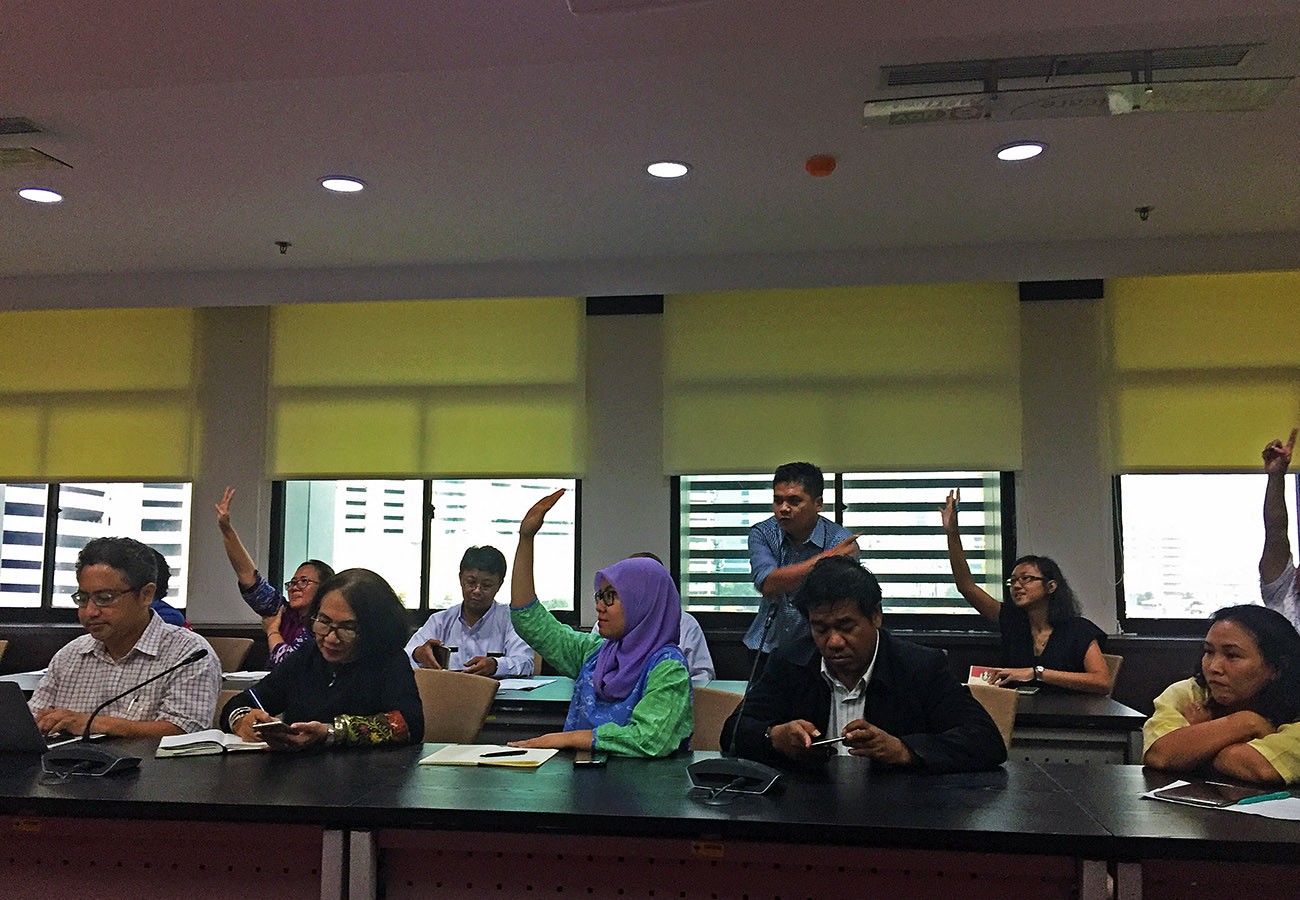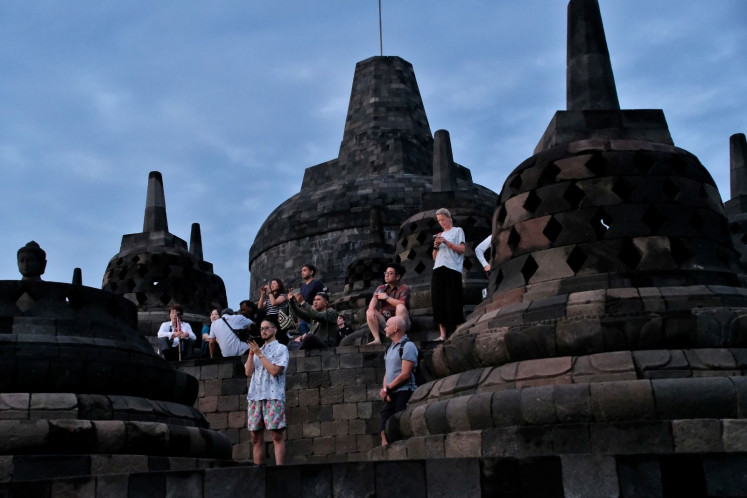Popular Reads
Top Results
Can't find what you're looking for?
View all search resultsPopular Reads
Top Results
Can't find what you're looking for?
View all search resultsEDITORIAL: Independent rights body
Selection of members of state institutions should no longer be under the authority of the House.
Change text size
Gift Premium Articles
to Anyone
T
he National Commission on Human Rights (Komnas HAM) established in 1993, near the end of Soeharto’s regime, has become a model for the region. The commission, first chaired by retired Supreme Court justice Ali Said remains the benchmark for its successors — which have not managed to emulate its integrity or credibility.
Ironically, the first batch of commission members — including activist Asmara Nababan, former chief prosecutor Baharuddin Lopa and Golkar Party politician Marzuki Darusman — were appointed by the president, not by lawmakers as is the case in today’s democracy.
On Wednesday, the House of Representatives elected seven commission members for the 2017-2022 term. The House will submit the names to the President for approval.
However, few would express much hope in the new faces although they do include leading human rights advocates Choirul Anam and Ahmad Taufan Damanik, formerly of the ASEAN commission on women and children — given the squabbles and lack of integrity of previous commissioners.
Indeed, the selection of members of state institutions should no longer be under the authority of the House.
The lawmakers’ vested interests are too obvious, as most notably displayed in their repeated assault on the Corruption Eradication Commission (KPK). Even though they select its commissioners, the politicians have persistently attempted to undermine the KPK’s performance and its authority.
The selection of state body members by the House was part of strengthening the legislative branch compared to its previous role as a rubberstamp to the strong presidency during the New Order. But we have seen how the politicians’ resistance against threats to their interests plays strongly into their authority to screen candidates of state bodies.
As state bodies answer directly to the president, selection of their members should be left to the president, who now merely approves or disapproves the short list recommended by the House. Nevertheless, any attempt at interference by the president would come under the scrutiny of a public inured to the principle of independence of state bodies, regardless of criticism of either the KPK or Komnas HAM, for instance.
Time and again the independence of state bodies are tested; the KPK, which includes detectives deployed by the National Police, often faces mega corruption cases implicating high ranking officers. Until today, one of its detectives, Novel Baswedan, is still getting treatment for an acid attack, while the perpetrators remain unknown and free. The stagnancy of the case partly can be blamed on commissioners with less unity than their predecessors, all handpicked by the House.
Every new batch of state bodies must prove their independence to win public trust. We do not need the repeated saga of candidates who have faced considerably rigorous screening by the selection committees only to see politicians choosing those who apparently pose less of a risk to their interests.
We now have only seven new commissioners of the Komnas HAM, an attempt to make them more solid. We wish them every bit of luck.










